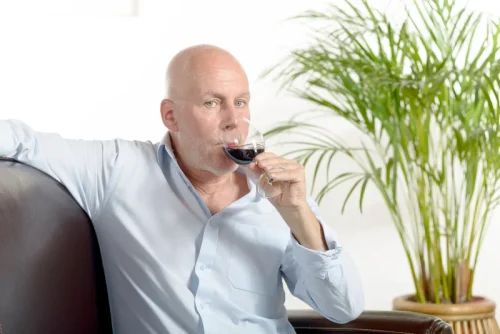Sober living
16 Benefits of Not Drinking Alcohol & What to Expect
In fact, a massive global 2018 study suggests that no amount of alcohol actually improves your health. And we’re not just talking about no more hangovers — though that’s definitely an added bonus. Since alcohol can damage your cells, it may lead to DNA changes that increase your risk for certain cancers, particularly liver, colon, and rectal cancer. In fact, alcohol use accounts for 6 percent of all cancers and 4 percent of all cancer deaths in the U.S.
Can giving up alcohol affect your mental health?
Whether you’re pushing your limits in a workout or tackling a busy day, Owala’s innovative products like the 40 oz Tumbler and FreeSip water bottle keep you hydrated and refreshed throughout. Embrace the power of cold water with Owala, where every sip keeps you cool, focused, and ready to conquer the day. Addressing common misconceptions, such as whether cold water dehydrates or is less hydrating than room temperature water, helps us weed out the truth.
Mental Benefits of Quitting Alcohol
But, as drinking even at low levels increases the risk of these diseases, deciding to stop drinking completely is a positive choice. “I never really thought about the consequences until I turned 18 and started going to clubs every weekend,” she says. With the support of her boyfriend, she decided to stop drinking alcohol completely to see if it improved her health and wellbeing.
Healthier Liver Function
Cold water quickly absorbs heat from your body, reducing the risk of overheating and avoiding heat exhaustion. Studies have shown that cold water is particularly effective at keeping up your performance during intense activities. While this is often a time people experience much higher quality sleep, it’s also common to have vivid dreams of drinking alcohol and wake up disoriented. Dreaming about alcohol is a totally normal part of any sobriety journey. Acute alcohol withdrawal symptoms can range from mild to severe, and the severe symptoms can be dangerous or even life-threatening. That’s why that initial physician consultation is so important, and with Monument, you can see a physician using your existing health insurance.
- When you abuse alcohol, your brain’s dopamine receptors get overloaded and numbed, leading to feelings of sadness and even hopelessness that take more and more alcohol to “fix.”
- By week three, you will have saved about $450–$600 from not buying alcohol.
- When you stop drinking, your skin gets more elastic and the redness and discoloration on your face will slowly fade.
- The appeal of cold water goes beyond temperature—the satisfying feeling it gives makes you more motivated to drink more water throughout the day.
But knowledge is power, and to help set expectations, I’ll be sharing some common experiences I’ve seen with my recovery coaching clients, and in my own sobriety journey. A day and a half after quitting alcohol, withdrawal symptoms will intensify. New symptoms will develop, including what happens when you stop drinking alcohol clammy skin, nausea, jumpiness, insomnia, depression and loss of appetite. As new symptoms develop, they will become more and more intense as withdrawal progresses. The decision to abstain from alcohol is a powerful one, unlocking so many positive changes in your body over time.
Stay Cool and Hydrated: The Benefits of Drinking Cold Water
On top of those mostly empty calories, alcohol ramps up your appetite. It also makes you more impulsive, and less able to resist the fries and other temptations on the menu. So when you stay away from alcohol, the number on your scale may well start moving down. Heavy drinking can actually cause the part of the brain that’s critical to memory and learning (hippocampus), to shrink. Studies have also connected alcohol use to an increased risk of stroke, especially for people under the age of 45 years old. Alcohol can also affect digestion, storage, utilization, and excretion of nutrients.
Improved Memory & Cognitive Functions
Thanks to a marketing-savvy alcohol industry — and our society’s love of drinking — few people realize that drinking alcohol increases your risk of cancer. Hangovers, or alcohol withdrawal, cause hormonal changes, too, which explains why we might feel so crummy after drinking. Alcohol has quite deleterious effects, as ethanol, an organic compound in alcohol, is a toxin to our body, Scheller explains. Within 3-7 days, withdrawal symptoms will stop for most dependent drinkers.
Here’s a timeline of how your body might react after you stop drinking alcohol. Even just one bout of drinking too much may weaken your body’s germ-fighting power for up to 24 hours. Over time, large amounts of alcohol blunt your immune system and your body’s ability to repair itself. If you want to reduce your https://ecosoberhouse.com/ alcohol use and stop drinking, there is help and support for you. Behavioral interventions, medications, and social support can all play a role in your alcohol recovery. People who drink heavily are about twice as likely to have a cardiovascular event within 24 hours than people who do not drink at all.
High-risk drinking is more than three drinks a day for women and four a day for men, and this is considered higher risk for alcohol use disorder (AUD). While it has been suggested that one or two drinks per day may have health benefits, one meta-analysis found that even moderate intake has serious health risks. Women who had two or more drinks per day and men who had four or more drinks per day had significantly increased mortality. When you first stop drinking, your body will begin to detoxify itself. This can lead to withdrawal symptoms, including anxiety, tremors, sweating, and nausea.




